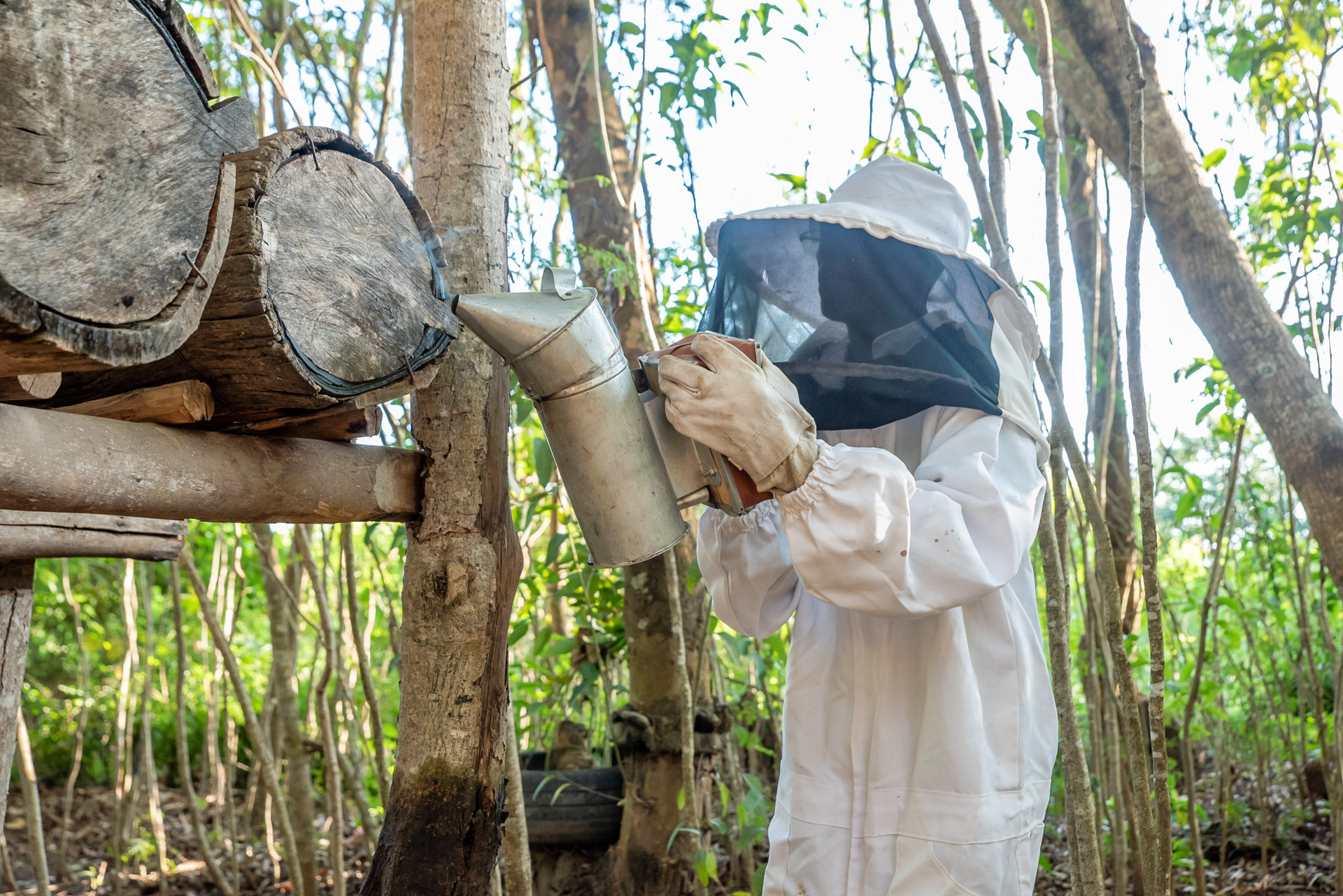Transforming beekeeping in Kitui County, Kenya - Josephat’s Success Story

A beekeeper in protective gear uses a smoker to calm bees while tending to a log hive in a forested area in Kenya.
©FAO
Rome 20th May 2025. What’s the buzz about World Bee Day?
Well, for starters, bees and other pollinators are vital to global food security and nutrition, helping to conserve the biodiversity needed to produce our foods and ensure healthy ecosystems. They are also an important source of income for small-scale farmers around the world, like Josphat from Kenya’s Kitui County. He and his group of local beekeepers are now producing a better grade of honey thanks to new production techniques learned during a farmer field school – from new bee feeding and watering methods to pest control, sustainable harvesting and safety practices.
Josphat is one of around 300 000 farmers trained through the National Agricultural and Rural Inclusive Growth Project in Kenya, a project supported by the World Bank and FAO’s Investment Centre. The FAO-pioneered farmer field school approach promotes hands-on group learning, observation and critical analysis to solve production problems. Josphat is now producing a high-quality pure honey that sells for Ksh. 1000 per kilo – a big increase from the Ksh. 80 per kilo his honey used to fetch. Watch how this programme is empowering farmers and transforming beekeeping in Kenya.
